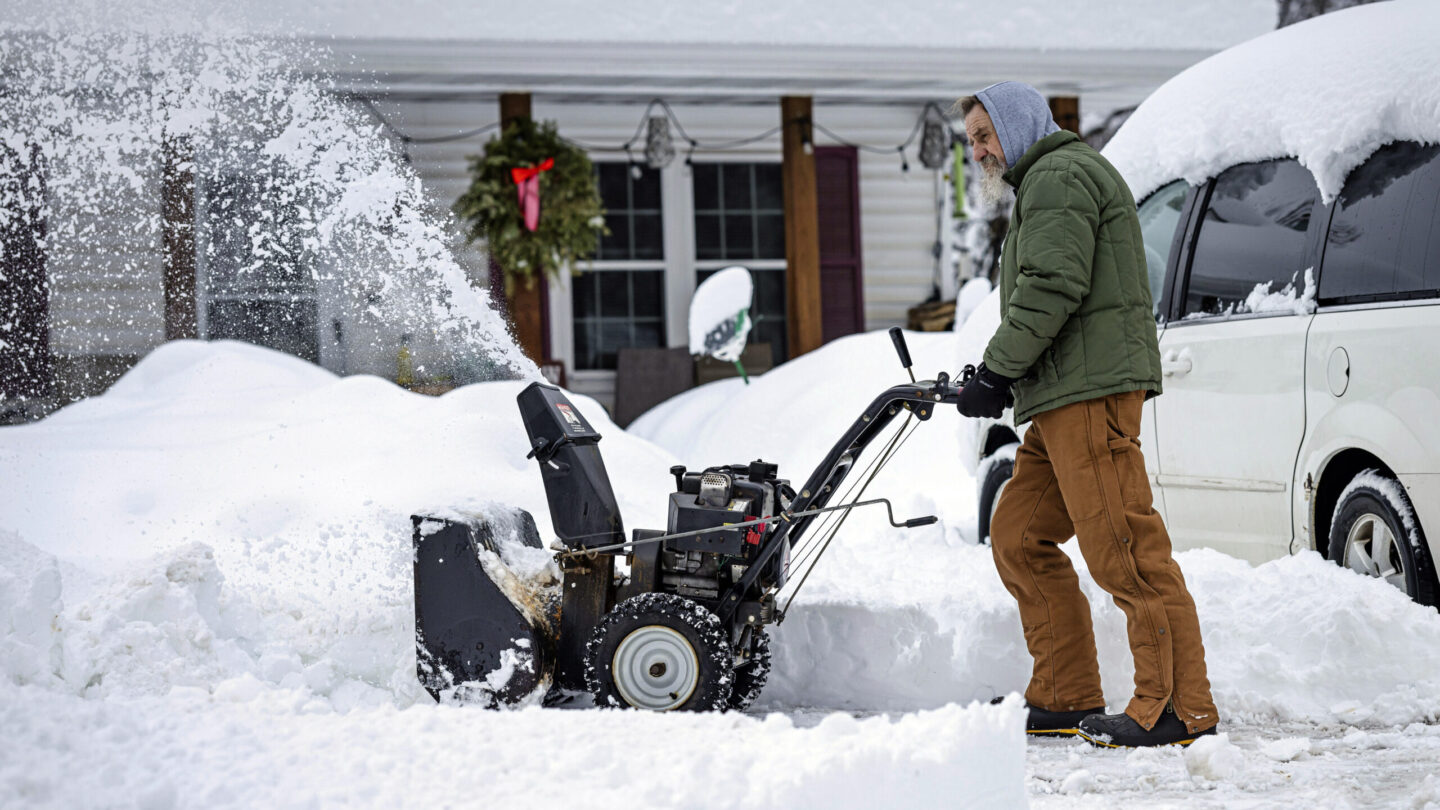Bitter cold, biting wind and heavy snow are expected across the U.S. this week, forecasters say, imposing treacherous travel conditions just days before Christmas.
The latest bulletin from the National Weather Service (NWS) names the cause as a “strong arctic high pressure system,” which swept down from Canada on Tuesday and appears poised to march towards the Southeast on Wednesday and Thursday, leaving a wake of life-threatening weather systems across 17 states.
The Cascades mountains in Washington state are likely to see the heaviest snowfall on Tuesday, but nearby lowlands in Idaho, Montana and Wyoming could see a foot of snow, according to the NWS. The region could see another blast of snow and ice on Thursday.
The incoming arctic front will then cross over the northern Rockies, Great Basin and Northern Plains regions, sending temperatures plummeting as low as minus 30 degrees and winds gusting as fast as 60 mph.
Snow is likely to follow again on Wednesday, covering parts of Nebraska, Kansas, the Dakotas, Minnesota, Iowa and Wisconsin. By Thursday, blizzard conditions could hit the Upper Midwest and Great Lakes regions.
For the eastern U.S., heavy rain on Tuesday and Wednesday could result in snow or sleet in the Appalachian states on Thursday.
By Friday, temperatures could hit the season’s lowest in what is only the first week of winter. Even northern Florida cities like Jacksonville and Tallahassee could see a chill as low as 20 F on Christmas Eve.
Holiday travelers should proceed with extreme caution, forecasters say.
“Low visibility will create even more dangerous travel conditions on top of snow covered roadways,” the NWS says. “Additionally, the strong winds could lead to potential power outages from the Midwest to the Northeast.”
“It is imperative that travelers check the latest forecast before venturing out.”
As of Tuesday morning, air travel appeared largely undisturbed by the approaching polar front, with more than 575 delays and 285 cancellations at airports across the U.S., according to the tracking site Flight Aware.
An outage that left 180,000 without power across New England over the weekend was resolved by Monday, but the Associated Press reported that attempts to bring extra utility workers into the state ahead of this week’s storm were stymied by slick roads.
Police across New England also said they responded to hundreds of crashes and stranded vehicles, according to local media reports.
Frostbite is another risk for those trying to brave the cold, the NWS says. Subzero temperatures in some parts of the U.S. this week could lead to frostbite on exposed skin in as little as 10 minutes.
Those venturing outside should dress in layers, cover their skin and change into dry clothing as soon as possible. But, experts say, the best prevention by far is simply to stay indoors.
Copyright 2022 NPR. To see more, visit https://www.npr.org.
9(MDAxODM0MDY4MDEyMTY4NDA3MzI3YjkzMw004))

9(MDAxODM0MDY4MDEyMTY4NDA3MzI3YjkzMw004))








